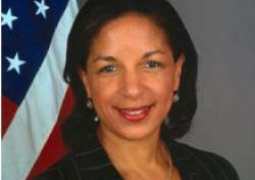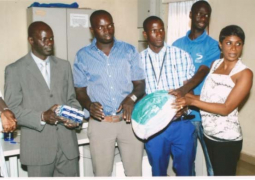Limya Elhayeb UNDP Deputy resident representative has stated that in the Gambia the rapid population growth rate with its in crease demand for food and other services has led to serious environmental consequences. Ms Eltayeb made these remarks while giving a keynote address during the opening g ceremony of a three day training workshop on strategic Environmental Assessment (SEA) held at Kairaba Beach Hotel.
On Monday. According to her the state of the environment report of 1997 estimated that, the volume of beach sand extracted for construction and other purposes at approximately 100,000 cubic meters and coastal erosion at the rate of 2 meters per annum; while the predicted rate of destruction and erosion of cultivated lands were estimated at 60% and 12.5 tons/ha/ year respectively. Noting that real and potentials impacts of climate change and climate variations is visible on the key sectors of the national economy-sectors such as agriculture, forestry, water resources, energy, tourism etc. "The Gambia Environment Action Plan implemented from 1992-2001 recognise the link between sustainable socio-economic development and environmental protection as highlighted in vision 2020 and provides framework, for continuous environmental policy planning, natural resources and establishes the institutional frame work to raise awareness and address that affect the environments." She added.
She position that mainstreaming Environment into development is one of UNDP's four priorities in Environment and sustainable development t as well as a key outcome in the country programme.
Action Plan signed between the UNDP and the Government of the
For his part Mr. Momodou B. Sarr NEA executive director stated that strategic environmental assessment (SEA) offers a promising methodology to promote and improve planning processes in general and the integration of environmental aspects into policies plans and programmes in particular.
He further re-iterated the importance, relevance and timeliness of this training seminar for policy/decision makers in strategic environmental assessment in the drive to reverse the current negative environmental trends affecting our socio-economic development process, this is evidence by the presence of high level policy/decision makers including permanent secretaries, heads of parastatals and other semiautonomous government agencies. According to him NEA was created in 1993 and there has been Environmental impact Assessment routine applied as required under the National Environment Management Act. Noting that SEA is a new environmental assessment undertaken to analyze environmental effects of government propose policies, plans, programmes and other strategic actions.
Mrs. Gwen Van Boven from Netherlands Commission independent expert body that provides advisory services on environmental and social impact assessment in the context of international cooperation since 1993. Adding that assists countries is establishing effective systems for impacts assessment, as a means of contributing to sustainable development, good governance and poverty.





